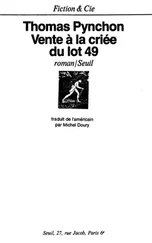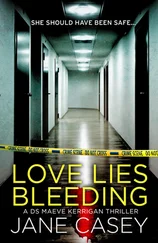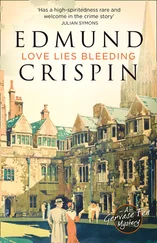Thomas Pynchon
BLEEDING EDGE
New York as a character in a mystery would not be the detective, would not be the murderer. It would be the enigmatic suspect who knows the real story but isn’t going to tell it.
—DONALD E. WESTLAKE
It’s the first day of spring 2001, and Maxine Tarnow, though some still have her in their system as Loeffler, is walking her boys to school. Yes maybe they’re past the age where they need an escort, maybe Maxine doesn’t want to let go just yet, it’s only a couple blocks, it’s on her way to work, she enjoys it, so?
This morning, all up and down the streets, what looks like every Callery Pear tree on the Upper West Side has popped overnight into clusters of white pear blossoms. As Maxine watches, sunlight finds its way past rooflines and water tanks to the end of the block and into one particular tree, which all at once is filled with light.
“Mom?” Ziggy in the usual hurry. “Yo.”
“Guys, check it out, that tree?”
Otis takes a minute to look. “Awesome, Mom.”
“Doesn’t suck,” Zig agrees. The boys keep going, Maxine regards the tree half a minute more before catching up. At the corner, by reflex, she drifts into a pick so as to stay between them and any driver whose idea of sport is to come around the corner and run you over.
Sunlight reflected from east-facing apartment windows has begun to show up in blurry patterns on the fronts of buildings across the street. Two-part buses, new on the routes, creep the crosstown blocks like giant insects. Steel shutters are being rolled up, early trucks are double-parking, guys are out with hoses cleaning off their piece of sidewalk. Unsheltered people sleep in doorways, scavengers with huge plastic sacks full of empty beer and soda cans head for the markets to cash them in, work crews wait in front of buildings for the super to show up. Runners are bouncing up and down at the curb waiting for lights to change. Cops are in coffee shops dealing with bagel deficiencies. Kids, parents, and nannies wheeled and afoot are heading in all different directions for schools in the neighborhood. Half the kids seem to be on new Razor scooters, so to the list of things to keep alert for add ambush by rolling aluminum.
The Otto Kugelblitz School occupies three adjoining brownstones between Amsterdam and Columbus, on a cross street Law & Order has so far managed not to film on. The school is named for an early psychoanalyst who was expelled from Freud’s inner circle because of a recapitulation theory he’d worked out. It seemed to him obvious that the human life span runs through the varieties of mental disorder as understood in his day—the solipsism of infancy, the sexual hysterias of adolescence and entry-level adulthood, the paranoia of middle age, the dementia of late life… all working up to death, which at last turns out to be “sanity.”
“Great time to be finding that out!” Freud flicking cigar ash at Kugelblitz and ordering him out the door of Berggasse 19, never to return. Kugelblitz shrugged, emigrated to the U.S., settled on the Upper West Side, and built up a practice, soon accumulating a network of high-and-mighty who in some moment of pain or crisis had sought his help. During the fancy-schmancy social occasions he found himself at increasingly, whenever he introduced them to one another as “friends” of his, each would recognize another repaired spirit.
Whatever Kugelblitzian analysis was doing for their brains, some of these patients were getting through the Depression nicely enough to kick in start-up money after a while to found the school, and to duke Kugelblitz in on the profits, plus creation of a curriculum in which each grade level would be regarded as a different kind of mental condition and managed accordingly. A loony bin with homework, basically.
This morning as always Maxine finds the oversize stoop aswarm with pupils, teachers on wrangler duty, parents and sitters, and younger siblings in strollers. The principal, Bruce Winterslow, acknowledging the equinox in a white suit and panama hat, is working the crowd, all of whom he knows by name and thumbnail bio, patting shoulders, genially attentive, schmoozing or threatening as the need arises.
“Maxi, hi?” Vyrva McElmo, gliding across the porch through the crowd, taking much longer than she has to, a West Coast thing, it seems to Maxine. Vyrva is a sweetheart but not nearly time-obsessed enough. People been known to get their Upper West Side Mom cards pulled for far less than she gets away with.
“I’m like in another scheduling nightmare this afternoon?” she calls from a few strollers away, “nothing too major, well not yet anyway, but at the same time…”
“No prob,” just to speed things up a little, “I’ll bring Fiona back to our place, you can come get her whenever.”
“Thanks, really. I’ll try not to be too late.”
“She can always sleep over.”
Before they got to know each other, Maxine would bring out herbal tea, after putting on a pot of coffee for herself, till Vyrva inquired, pleasantly enough, “Like I’m wearing California plates on my butt, or what?” This morning Maxine notes a change from the normal weekday throwtogether, what Barbie used to call an Executive Lunch Suit instead of denim overalls, for one thing, hair up instead of in the usual blond braids, and the plastic monarch butterfly earrings replaced by what, diamond studs, zircons? Some appointment later in the day, business matters no doubt, job hunting, maybe another financing expedition?
Vyrva has a degree from Pomona but no day job. She and Justin are transplants, Silicon Valley to Silicon Alley. Justin and a friend from Stanford have a little start-up that somehow managed to glide through the dotcom disaster last year, though not with what you’d call irrational exuberance. So far they’ve been coming up OK with the tuition at Kugelblitz, not to mention rent for the basement and parlor floors of a brownstone off Riverside, which the first time Maxine saw she had a real-estate envy attack. “Magnificent residence,” she pretended to kvell, “maybe I’m in the wrong business?”
“Talk to Bill Gates here,” Vyrva nonchalant, “I’m just hangin out, waitin for my stock options to vest? Right, honey?”
California sunshine, snorkel-deep waters, most of the time anyway. Once in a while, though… Maxine hasn’t been in the business she’s in for this long without growing antennas for the unspoken. “Good luck with it, Vyrva,” thinking, Whatever it is, and noting a slow California double take as she exits the stoop, kissing her kids on top of their heads on the way past, and resumes the morning commute.
Maxine runs a small fraud-investigating agency down the street, called Tail ’Em and Nail ’Em—she once briefly considered adding “and Jail ’Em,” but grasped soon enough how wishful, if not delusional, this would be—in an old bank building, entered by way of a lobby whose ceiling is so high that back before smoking was outlawed sometimes you couldn’t even see it. Opened as a temple of finance shortly before the Crash of 1929, in a blind delirium not unlike the recent dotcom bubble, it’s been configured and reconfigured over the years since into a drywall palimpsest accommodating wayward schoolkids, hash-pipe dreamers, talent agents, chiropractors, illegal piecework mills, mini-warehouses for who knows what varieties of contraband, and these days, on Maxine’s floor, a dating service called Yenta Expresso, the In ’n’ Out Travel Agency, the fragrant suite of acupuncturist and herb specialist Dr. Ying, and down the hall at the very end the Vacancy, formerly Packages Unlimited, seldom visited even when it was occupied. Current tenants remember the days when those now chained and padlocked doors were flanked by Uzi-packing gorillas in uniform, who signed for mysterious shipments and deliveries. The chance that automatic-weapons fire might break out at any minute put a sort of motivational edge on the day, but now the Vacancy just sits there, waiting.
Читать дальше













